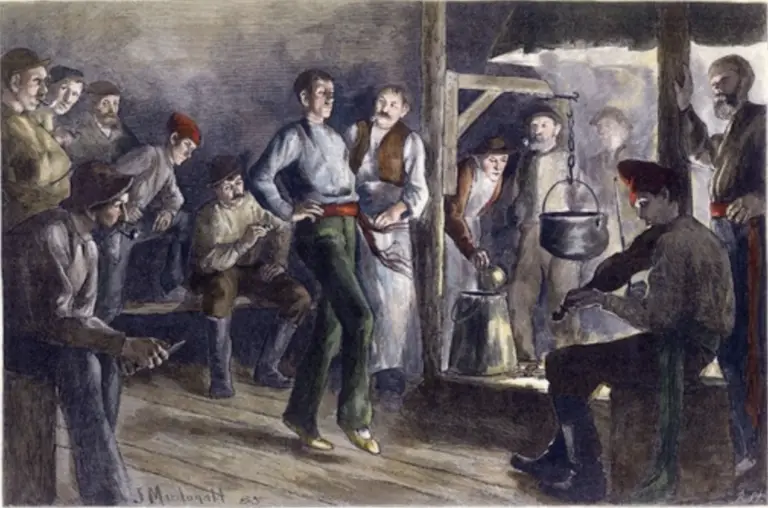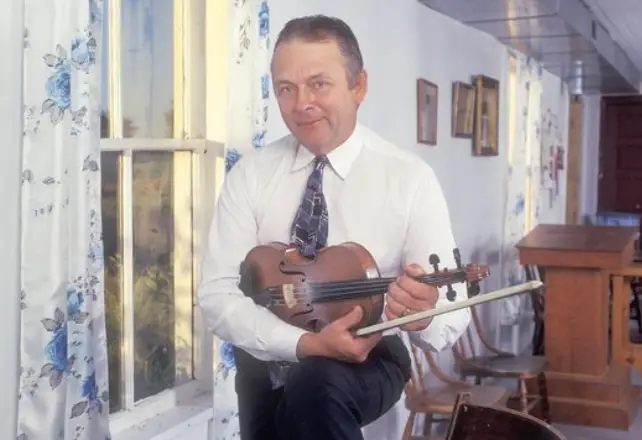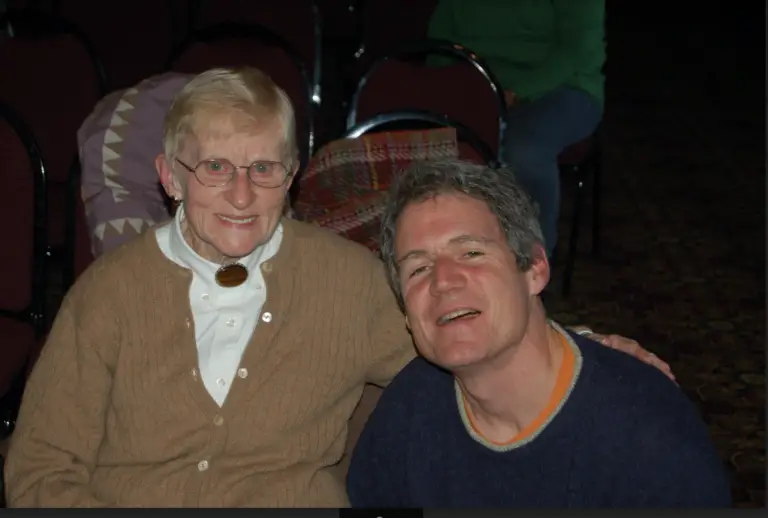If you’re in New York and looking for traditional folk music, you might be surprised to find roots closer to home than you thought. While the genre is often associated with the South, in reality, Upstate New York – particularly the Adirondacks – is home to a vibrant past of traditional music composed of folklore, work songs and rich oral traditions.
Dave Ruch, a Buffalo-based musician, music educator and folk music archivist/historian has been delving deep into the history of traditional music of the Adirondacks for the past 30 years. As he explains, the Adirondacks, with its great wilderness and rural flair provided a perfect breeding ground for the diverse style of music that originated there.

The Roots of Adirondack Music
Traditional music as it is commonly known is a genre of music specific to a certain region and local people or culture. It is typically anonymous music, passed down orally and serves as an expression of the life of people in that given community. Traditional Adirondack music in particular is further characterized by a few key elements as Ruch explains.
“So much of it goes back to work in the woods, lumbering being one of the main occupations there throughout the 19th century and into the 20th,” Ruch said. “That was a real fertile ground for this music to spread and be used. “
As he continued, very often logging operations would be deep in the woods and the lumber companies would have to build temporary housing units for workers to live in in the forest. By Ruch’s count, anywhere from 30-50 guys crammed into these small living spaces for an entire winter, working 6 days a week. Additionally no booze was usually allowed on the premises.

“Singing and entertaining each other became really the primary form of entertainment for a lot of these guys,” Ruch said. “It was a living tradition as well, so they’d be making up new songs about somebody who died on the log drive or to complain about the boss.”
Adirondack music was also greatly influenced by the influx of Canadians and Irish immigrants who went to work in the iron mines and lumber camps. These influences found their way into the Adirondacks in a variety of unexpected ways.
“I was working on a project several years ago and I ended up finding at least one song that a man up in Wilmington, NY had been singing and he was the only person to ever be found in America that was reported to know and sing that song,” Ruch recalled. “It’s been recorded 20-30 different places in Atlantic Canada but it had only been found once in America and that was in that Northeastern corner of New York State. That song followed the people as they migrated.”
Through the Generations
While Adirondack music might seem like a thing of the past, its oral traditions trickle downward through the subsequent generations of music makers. Ruch said what makes this music special is that unlike other regions of New York, the Adirondacks seems to be the only place where you can still find people today who have a direct link to this old music.

Ruch has talked visited and befriended many of these multigenerational musicians who carry on family legacy and traditions. One such example he cited is Don Woodcock, a musician in St. Lawrence who holds the tile of “Grand Champion Fiddler of New York State.” Woodcock’s father played the fiddle for square dances and had learned such songs from older musicians. Decades later this combined knowledge was all passed down to Don. In some cases, Ruch said these songs don’t even have names, Woodcock simply knows them as “The song my dad always started the square dances off with.”
“He didn’t learn out of a book and he didn’t learn it because he wanted to learn about local music, he‘s what you’d call a tradition-bearer,” Ruch said. “He’s a living link to this old music that predates radio and T.V. and goes back to a time where people entertained themselves and their neighbors with this traditional music.”
Change and Loss Over Time
With each song passed down through the generations, the music of the Adirondacks changes as well.
Ruch cited another musician by the name of Ermina Pincombe who took her Grandma’s a cappella version of a song called The Lumberjack’s Alphabet – complete with a lumberjack term for every letter of the alphabet – and set guitar chords to the music, based on her own taste for the country and “hillbilly” music that came into the home via 1930’s radio.

“A hallmark of all traditional music is that because there’s no known author and no one set way to do it, people feel pretty free to change a couple words or sing it to a different melody that’s okay, ” Ruch said. “An aspect of the tradition is that it can completely evolve and usually does over time.”
While Adirondack music continues on, there is an innate risk with the oral tradition. If not enough people carry on the songs, it can be lost forever. Ruch hopes to carry on the legacy of mountain music by sharing these types of songs and stories. As he explained, it’s not just a matter of educating people from across the country, it starts in his own backyard.
“The folk audiences will often say ‘we knew about music from Kentucky and the Ozark mountains but we had no idea there was this music from New York’ and I tell them, ‘well people in New York don’t realize there’s anything either.’”
A Night of Adirondack Music
For those interested in learning more about traditional Adirondack music, Ruch is hosting a show titled, “An Evening of Music and Stories from the Adirondacks and the Erie Canal” on January 18th at the Sportsmen’s Tavern in Buffalo, NY.

Ruch will be performing the traditional songs he has learned by talking with musicians in the region and sharing the stories behind the music and its creators. While Ruch’s talks are typically reserved for classrooms, historic societies or libraries, he said the cozy and casual environment of the bar will make for a nice change of pace.
“It’s always nice to bring it out where ordinary people are and you get to do it with a beer in hand,” Ruch said. “People really love the stories and love to learn the background of the music as much as they love the music itself.”
Ruch will be performing at the Sportsmen’s Tavern on 326 Amherst St in Buffalo, NY at 7 pm on Jan. 18.
You can buy tickets for the event here and learn more about the history of Adirondack music on Ruch’s website on traditional arts in Upstate New York (TAUNY) here.


Comments are closed.